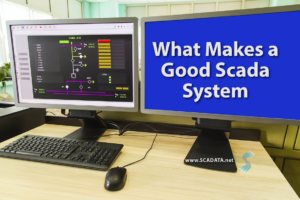SCADA is a very powerful technology that helps us automate our world. Often, SCADA is used to control processes in instances where human oversight seems impractical. Some systems and processes require a high level of management, while needing attention to detail. However, these tasks are often monotonous and are better controlled by SCADA. In addition, SCADA is often instrumental in industries that can be dangerous for workers. (For an example, check out how New York has eliminated dangers for its mass transit employees using SCADA.)
Without these complex systems, our world would not continue to work at the most basic levels. SCADA is used in some of our most important, yet often overlooked, industries. If you consider indoor plumbing, air conditioning, and electricity to be important, then you benefit from SCADA. SCADA is used in the following:
- Water, wastewater, and storm water management: Access to clean drinking water and proper wastewater management is something that is so integrated into our everyday lives, we often take it for granted. SCADA helps limit overflows and backups of sewage by monitoring pump levels, regulating water flow, ensuring appropriate pipe pressure, helping to monitor remote lift stations, and performing other tasks. Additionally, many water providers use SCADA to treat and clean water to ensure we have a consistent supply of drinking water.
- Oil and Gas: SCADA plays a significant role in oil and gas. The software is used to control industrial processes, monitor remote sites, configure settings, gather and analyze data, and supply notifications, among other tasks. As an industry that is becoming more reliant on automation, oil and gas operations frequently use SCADA to keep things running.
- Electricity: In electricity, SCADA is used to generate and distribute electricity. Powering our cities requires consistent monitoring and allocation of resources to ensure power is generated and is pushed out to where it needs to go. SCADA systems are used to monitor remote facilities outside of a main power distribution system, keep track of circuit breakers, route power to necessary areas, allow for back-up power in the event of outages, minimize disruptions in service, detect problem areas, and supervise other tasks related to the maintenance of consistent power service.
- Transit systems and traffic: Cities use SCADA to help monitor traffic patterns. In mass transit, SCADA can be used to track trains and buses, control routes and crossing signs, automate rail systems, and control traffic signals, among other things. SCADA is largely responsible for the automation that occurs in large mass transit systems.
- Facilities: Large facilities sometimes use SCADA to automate certain tasks. It can be utilized to control heating and air conditioning, lighting, refrigeration, electricity, and other tasks that are common in large facilities. The use of alarms helps automate maintenance tasks and prevents problems from closing down facilities.
- Agriculture: SCADA can be used to monitor and track water usage for crops. Applications involve supervision of irrigation to keep tabs on water and provide remote telemetry of sites.
- Manufacturing: Manufacturing is another industry that benefits from automation. SCADA can be used to streamline processes and improve quality control. It can also help track inventory and process data related to the functioning of machinery needed to perform mandatory manufacturing tasks.
The possible applications for SCADA are not limited to this list. Any industry that benefits from automation can utilize this technology. The main advantages include
- Automation of processes
- Data tracking and analysis
- Remote site monitoring
If it sounds like your business could benefit from this kind of oversight, give SCADA a try. Schedule a free demo today!




